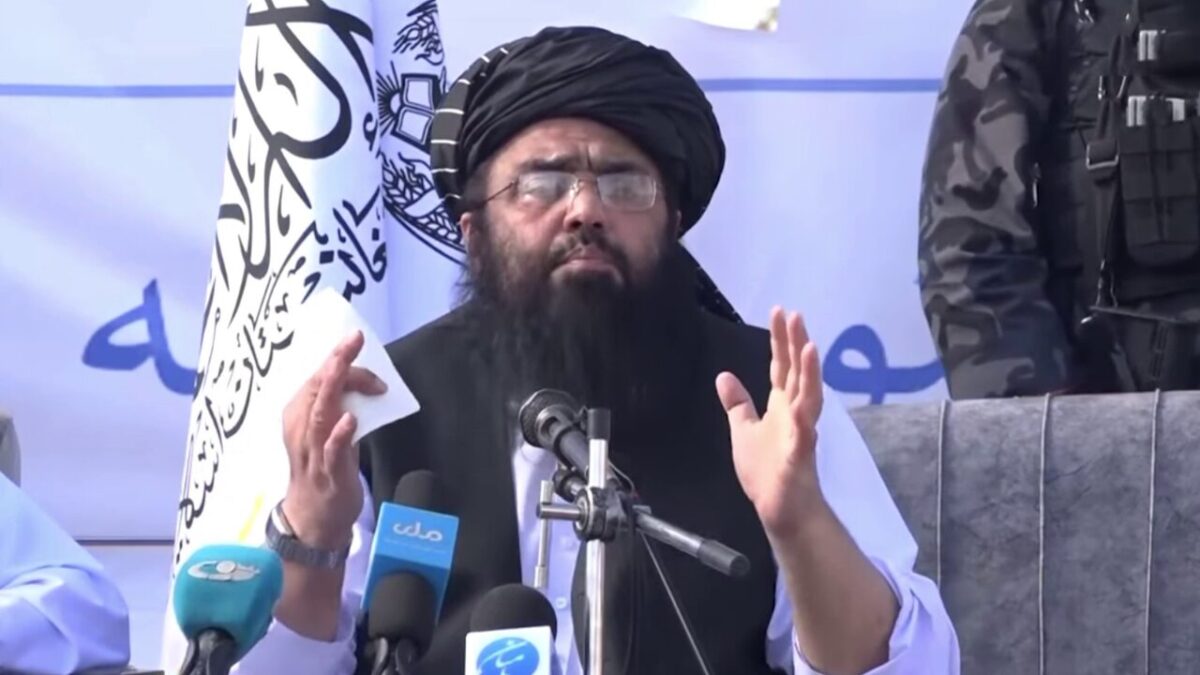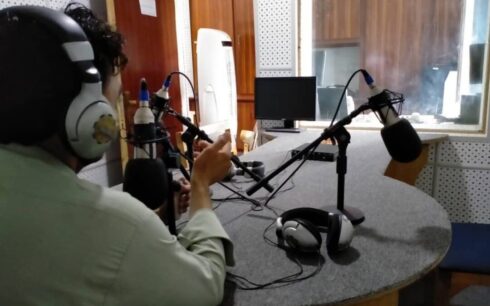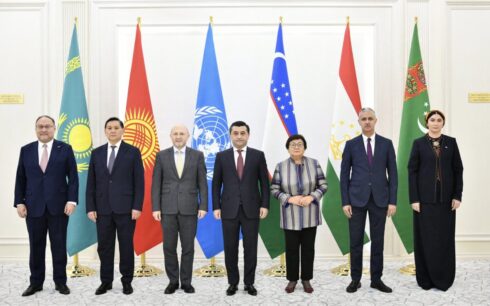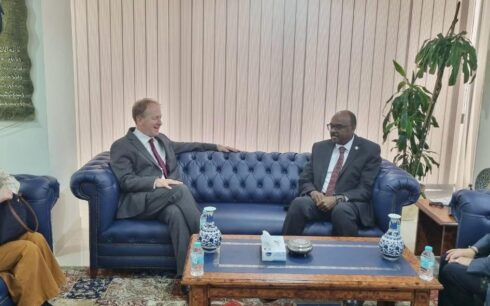BAMIYAN, Afghanistan — The Taliban’s deputy chief minister for political affairs, Abdul Kabir, asserted that despite lacking formal international recognition, the world’s interactions with the Taliban demonstrate a form of “political engagement.”
Speaking to senior Taliban leaders in the central province of Bamiyan on Tuesday, Nov. 12, Kabir emphasized that while no government has formally recognized the Taliban’s authority, the group has embassies operating globally and maintains active trade channels. “The world may not have officially declared recognition of our government, but its engagement with the Islamic Emirate [Taliban] is political,” Kabir said.
Kabir added that the international community’s engagement with the Taliban is increasing, suggesting that diplomatic and economic exchanges signify implicit acknowledgment. “What does political engagement mean if our embassy is open worldwide and there is import and export? Even if the world does not announce official recognition, what more can it do beyond having embassies open and continued trade?” he asked.
The Taliban claim diplomatic relations with around 40 countries, with their diplomats accepted in several of these nations. Among those that have allowed Taliban envoys to operate are Iran, Pakistan, China, and Russia. However, no country has yet granted official recognition to the regime.
The U.S. government has reiterated its stance on the Taliban in recent months, with the Department of State categorizing the Taliban as an international terrorist organization twice in the past six months.
Western embassies and political missions, including those of the United States, United Kingdom, Norway, Italy, and Germany, continue to operate for Afghanistan from Doha, Qatar, rather than from within Afghan borders.
In Kabul and other Afghan cities, some citizens expressed concern over the lack of consular services available to them from Western nations. Many noted that without formal diplomatic ties, Afghans abroad face significant challenges obtaining legal documents and other consular support, which impacts their ability to travel and access services abroad.
Meanwhile, the Taliban’s acting foreign minister, Amir Khan Muttaqi, emphasized the group’s desire to attract international investment, promising that Afghanistan would remain open to foreign businesses. “The Islamic Emirate’s policy is centered on economic development,” Muttaqi said. “We welcome anyone who wants to invest in Afghanistan under our laws.”
More than two years since the Taliban’s takeover of Afghanistan, no country has extended formal recognition. Many Afghans feel this diplomatic isolation has exacerbated daily hardships, as international relations remain strained and foreign aid limited.





